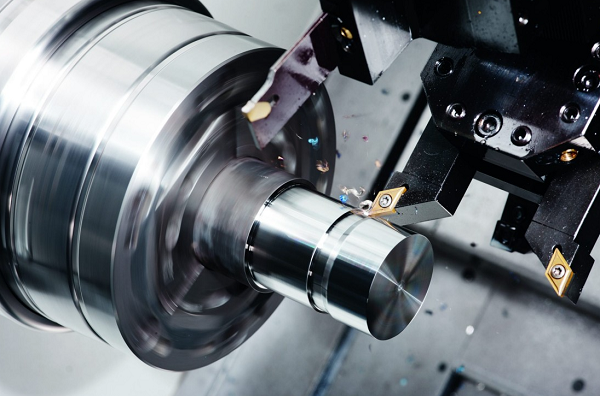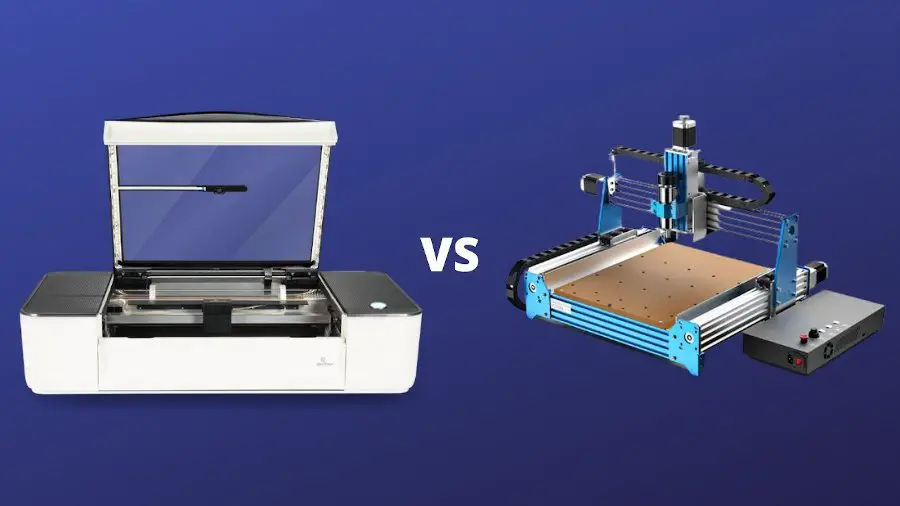Table of Contents
- Do Mechanical Engineers Use CNC Machines?
- Frequently Asked Questions
- Do mechanical engineers need to know how to use CNC machines?
- What types of CNC machines do mechanical engineers use?
- How do mechanical engineers ensure quality when using CNC machines?
- What are the benefits of using CNC machines in mechanical engineering?
- What skills do mechanical engineers need to use CNC machines?
Mechanical engineering is a vast field that involves designing, analyzing, and manufacturing mechanical systems. One of the key aspects of modern mechanical engineering is the use of CNC (Computer Numerical Control) machines. But, do mechanical engineers really use CNC machines in their work? The answer is a resounding yes! In fact, CNC machines have revolutionized the way mechanical engineers design and manufacture products. In this article, we will explore the role of CNC machines in mechanical engineering and how they help engineers create precise and complex mechanical parts with ease. So, let’s dive in!
Do Mechanical Engineers Use CNC Machines?
CNC (Computer Numerical Control) machines are a type of automated equipment used in manufacturing. They are used to cut, drill, and shape various materials with high precision and accuracy. Mechanical engineers are responsible for designing and developing machinery and mechanical systems. So, the question arises, do mechanical engineers use CNC machines? Let’s explore this in detail.
What are CNC Machines?
CNC machines are a type of automated equipment that use computer programs to control the movements of tools and machinery. They are used in various industries, including manufacturing, aerospace, automotive, and more. CNC machines are capable of producing complex parts with high precision and accuracy, making them an essential tool in modern manufacturing.
CNC machines come in various types, including CNC milling machines, lathes, routers, plasma cutters, and more. Each type of CNC machine is designed for a specific purpose, and they all use computer programs to control their movements.
How Do Mechanical Engineers Use CNC Machines?
Mechanical engineers use CNC machines in various ways, depending on their area of expertise. They use CNC machines to create prototypes, test designs, and manufacture parts for various machines and systems.
For example, if a mechanical engineer is designing a new engine, they might use a CNC milling machine to create the engine block. They can then test the engine block to ensure that it meets the necessary standards and specifications. Once the design is finalized, they can use CNC machines to mass-produce the parts needed for the engine.
The Benefits of Using CNC Machines for Mechanical Engineers
There are many benefits to using CNC machines for mechanical engineers. One of the most significant benefits is the ability to produce complex parts with high precision and accuracy. This allows mechanical engineers to create more efficient and reliable machines and systems.
Another benefit of using CNC machines is the ability to automate the manufacturing process. This can save time and money, as it reduces the need for manual labor and can increase production rates.
CNC Machines vs. Manual Machines
CNC machines offer many advantages over manual machines. Manual machines require a skilled operator to control the movements of the tools and machinery. This can be time-consuming and can lead to errors.
CNC machines, on the other hand, are controlled by computer programs. This allows for more precise and accurate movements, which reduces the likelihood of errors. Additionally, CNC machines can work continuously, 24 hours a day, seven days a week, without the need for breaks or rest.
The Future of CNC Machines in Mechanical Engineering
CNC machines are becoming increasingly popular in mechanical engineering, and their use is expected to continue to grow in the future. As technology advances, CNC machines are becoming more advanced and capable of producing even more complex parts with higher precision and accuracy.
Additionally, the use of CNC machines is expected to become even more widespread as the cost of the technology decreases. This will allow more businesses of all sizes to invest in CNC machines and take advantage of their many benefits.
Conclusion
In conclusion, mechanical engineers do use CNC machines in various ways, from creating prototypes to mass-producing parts for machines and systems. The benefits of using CNC machines include the ability to produce complex parts with high precision and accuracy, reduce the need for manual labor, and increase production rates.
CNC machines offer many advantages over manual machines, including more precise and accurate movements, 24/7 operation, and reduced likelihood of errors. As technology advances, the use of CNC machines in mechanical engineering is expected to continue to grow.
Frequently Asked Questions
Here are some common questions people ask about mechanical engineers and their use of CNC machines.
Do mechanical engineers need to know how to use CNC machines?
While it is not a requirement for mechanical engineers to know how to use CNC machines, it can be a valuable skill to have. CNC machines are commonly used in the manufacturing industry, and understanding how they work can help engineers design better products that can be efficiently produced using these machines. However, there are also specialized machinists who are trained to operate CNC machines, so engineers can work closely with them to ensure their designs are produced correctly.
Additionally, some mechanical engineers might choose to specialize in the field of CNC machining and become experts in the area. These professionals may work in industries such as aerospace or automotive manufacturing, where precision and efficiency are crucial.
What types of CNC machines do mechanical engineers use?
Mechanical engineers can use a variety of CNC machines, depending on the specific needs of their project. Some common types of CNC machines include lathes, milling machines, and routers. Lathes are used to cut and shape materials such as metal or wood, while milling machines use rotary cutters to remove material from a workpiece. Routers are similar to milling machines but are often used for cutting softer materials such as plastics or foam.
Some mechanical engineers might also use more specialized CNC machines, such as laser cutters or waterjets. These machines use different types of cutting methods to create precise cuts in a variety of materials.
How do mechanical engineers ensure quality when using CNC machines?
To ensure quality when using CNC machines, mechanical engineers must carefully design their parts and programs to be as precise as possible. They must also choose the appropriate materials and cutting tools for the job.
Once the program has been written and the machine is running, engineers can use various methods to check the quality of their parts. These might include using measuring tools such as calipers or micrometers, or performing visual inspections to ensure that the parts meet the required specifications.
What are the benefits of using CNC machines in mechanical engineering?
Using CNC machines can offer several benefits for mechanical engineers. These machines can produce parts more quickly and accurately than manual methods, which can save time and reduce errors. CNC machines can also be used to create more complex parts that might be difficult or impossible to make by hand.
Additionally, using CNC machines can help reduce material waste and increase efficiency in the manufacturing process. This can lead to cost savings for companies and can help make products more affordable for consumers.
What skills do mechanical engineers need to use CNC machines?
Mechanical engineers who work with CNC machines need to have a strong understanding of computer programming and design software. They should also be familiar with the types of materials and cutting tools commonly used in CNC machining.
Additionally, mechanical engineers who work with CNC machines should have good problem-solving skills and attention to detail, as they may need to troubleshoot issues that arise during the machining process. Communication skills are also important, as engineers will need to work closely with machinists and other team members to ensure that their designs are produced correctly.
In conclusion, the answer to whether mechanical engineers use CNC machines is a resounding yes. These machines have become vital tools in the field of mechanical engineering, allowing for precise and efficient manufacturing of complex parts and components.
CNC machines have revolutionized the manufacturing industry, making it possible to produce intricate designs with accuracy and speed. With the ability to program and automate the manufacturing process, CNC machines have significantly reduced the time and labor required for production. Mechanical engineers use these machines to produce a wide range of products, from small components to large machinery.
Moreover, the use of CNC machines has opened up new opportunities for mechanical engineers, allowing them to explore innovative and creative designs. With the ability to produce precise and complex parts, engineers can now push the limits of what is possible and create products that were previously unattainable. As technology advances, we can expect to see even more exciting developments in the field of mechanical engineering.
Request a quote today!
[contact-form-7 id="1578" title="Contact form"]
Please compress the file into a ZIP or RAR file before uploading. Alternatively, send through your RFQ by email.
enquires@unitymanufacture.com





